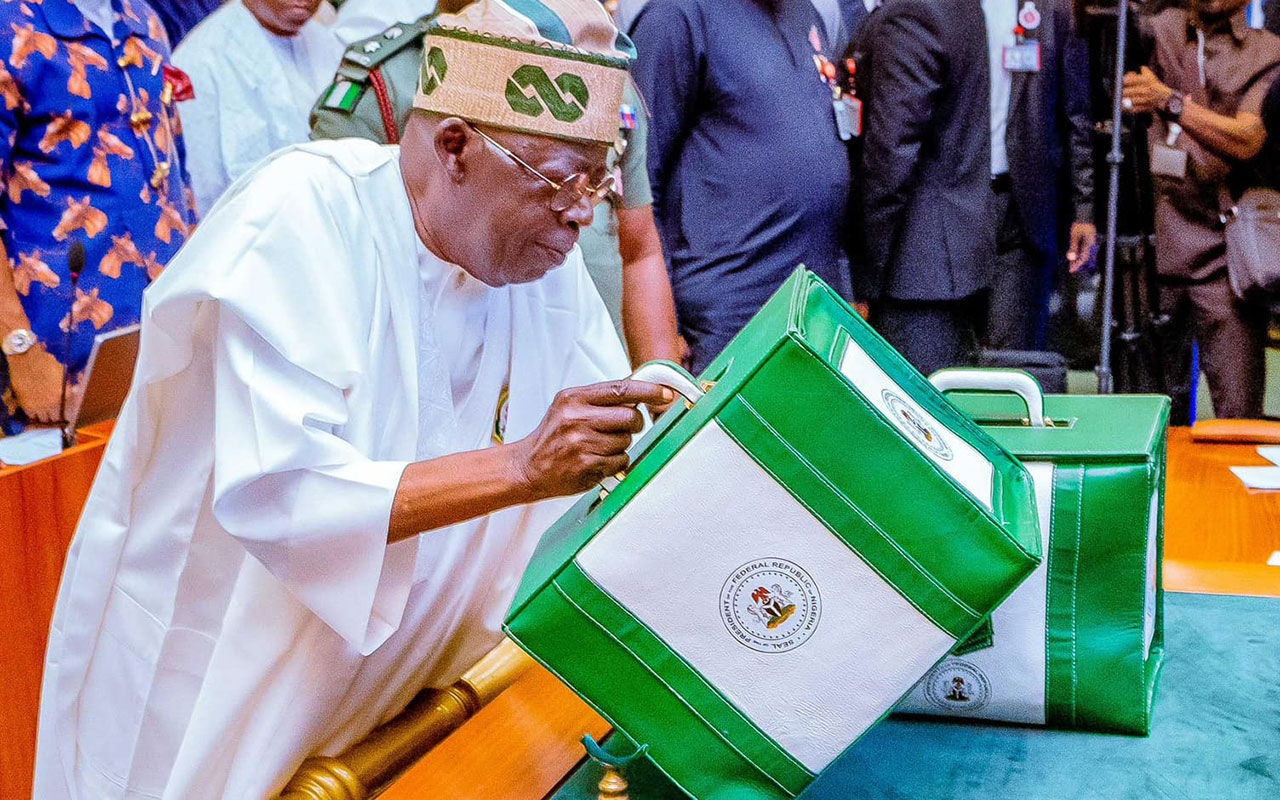 In a bid to assuage protesters during the course of the #EndBadGovernance protest, President Bola Ahmed Tinubu while addressing Nigerians in a live broadcast recounted the actualisation of half of its revenue generation target for 2024 as one of the major achievements of its administration. According to the President, aggregate government revenues have more than doubled, hitting over 9.1 trillion in the first half of 2024 compared to the first half of 2023, due to its efforts at blocking leakages, introducing automation and mobilising funding creatively.
In a bid to assuage protesters during the course of the #EndBadGovernance protest, President Bola Ahmed Tinubu while addressing Nigerians in a live broadcast recounted the actualisation of half of its revenue generation target for 2024 as one of the major achievements of its administration. According to the President, aggregate government revenues have more than doubled, hitting over 9.1 trillion in the first half of 2024 compared to the first half of 2023, due to its efforts at blocking leakages, introducing automation and mobilising funding creatively.
Recall, the 2024 budget which was tagged “The Budget of Renewed Hope”, had an aggregate expenditure of 27.5 trillion naira, with a non-debt recurrent expenditure put at 9.92 trillion naira while debt service is projected to be 8.25 trillion naira and capital expenditure at 8.7 trillion naira. Out of the total sum of 27.5 trillion, the government was meant to realise 18.3 trillion naira from internal sources and to be left with a deficit of 9.18 trillion naira. Judging from past trend, this feat is a welcome development because the past government under former President Buhari, consistently failed to realise its revenue target, rather it incurred more deficit and results to funding the greater percentage of the budget on borrowings.
Despite this achievement by the Tinubu administration, it is ironical that Nigerians cannot point to any evidence of positive developmental transformation or changes in the livelihood of people as a result of the revenue generated in the first half of the year. Such quantum of money realised are expected to be deployed through budget releases to MDAs for the funding of critical infrastructural projects and programmes under the renewed hope agenda. Unfortunately, there are no evidences of projects embarked upon by most MDAs. Upon enquiries, most of the MDAs have complained of lack of budgetary releases to implement approved capital projects under their domain. Meanwhile, in the face of the current hunger plaguing families and homes in Nigeria due to the removal of fuel subsidy, the President had promised to utilise the budget to restore hope to Nigerians.
Amongst the promises of Mr. President, is to provide a massive social security programme for Nigerians, implement critical infrastructural projects, reduce poverty and hunger by boosting food production and providing security in the farming areas, invest in renewable energy etc. Judging from these promises, little can be said to have been achieved because infrastructural projects across the country still remain at a very critical state.
Notable routes like the east-west road and roads traversing between Lokoja in the North central and the South East to mention but a few, still remain un-motorable. On the social security programmes such as the presidential conditional grant scheme, where promises were made to reach one million businesses in the 774 local government areas, and such other programmes, there is lack of transparency and accountability on how the beneficiaries of these programmes were selected.
Nigerians are very much aware that the current social register being utilised by the country to cater for the poorest of the poor cannot be trusted due to the corruption cases recorded and reported in the use of the register. There is no evidence of cleaning the register or producing a new one.
Also, Nigerians are fully aware that the president has presented up to three supplementary budgets since assuming office to the National Assembly, yet there are no visible projects to cushion the effects of the subsidy removal on Nigerians. It was only recently, that the President launched the 33 powered CNG buses amongst high demand for CNG powered vehicles in Nigeria.
It is the expectations of Nigerians that by this time, the Federal Government would have established partnerships with investors to establish numerous CNG assembling plants across the country and facilitate the importation of CNG powered vehicles to be distributed to Nigerians at subsidised rate. Nigerians also expected the Federal Government to have deployed funds to fix our moribund refineries and getting it to work at optimal capacity so that the country can stop the importation of refined petroleum products.
Most worrisome is the fact that the budget office of the federation has been failing on its duty to upload budget implementation reports on its website, the last report on the BOF website is that of third quarter of 2023. The failure of the budget office to account for a round of four quarters implementation report of the 2024 budget, makes it difficult for well-meaning Nigerians to assess Mr. President’s performance based on his statement on revenue realised.
In conclusion, as the nation forges ahead to attain its fiscal targets, the utilisation of these resources should be apportioned transparently in such a manner that would be evidential in the social wellbeing and developmental outcomes of Nigerians.
Emejuiwe, Monitoring Evaluation/Strategic Communication Manager, wrote from Centre for Social Justice, Abuja. He can be reached via:08068262366.






